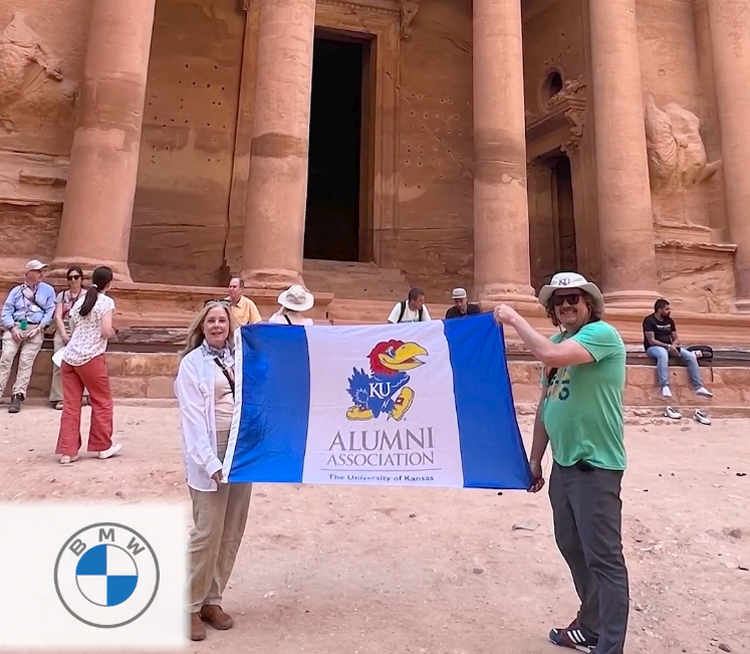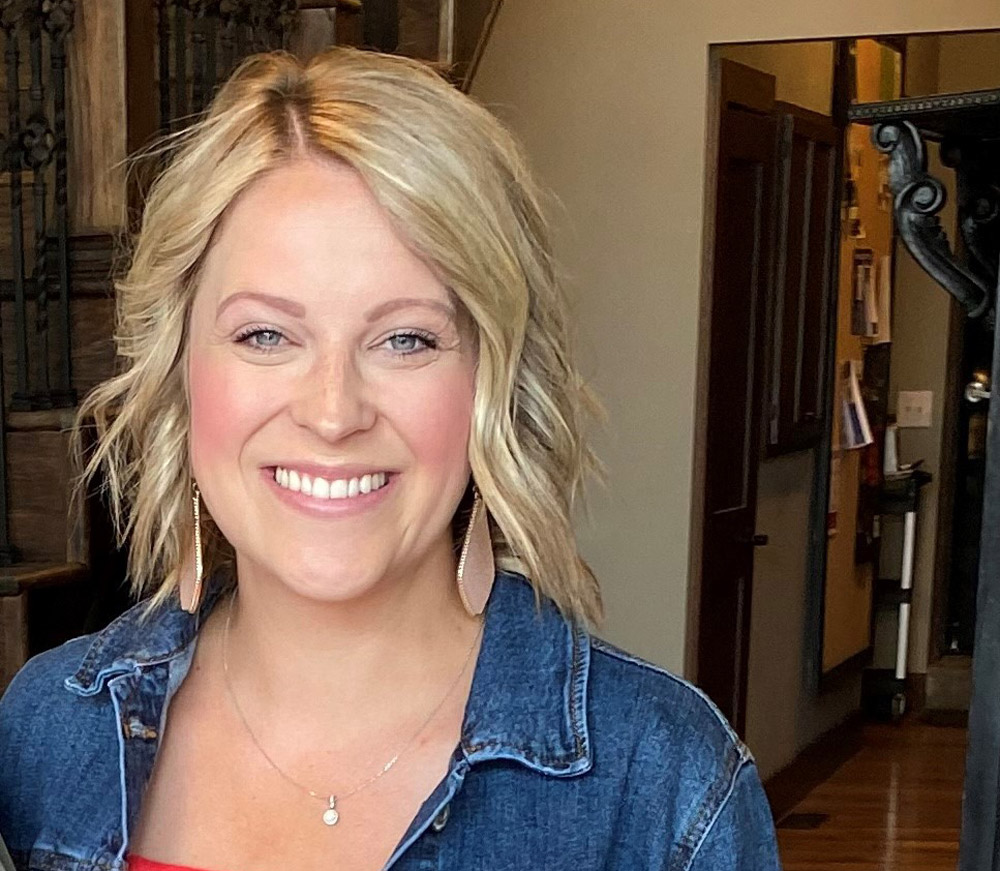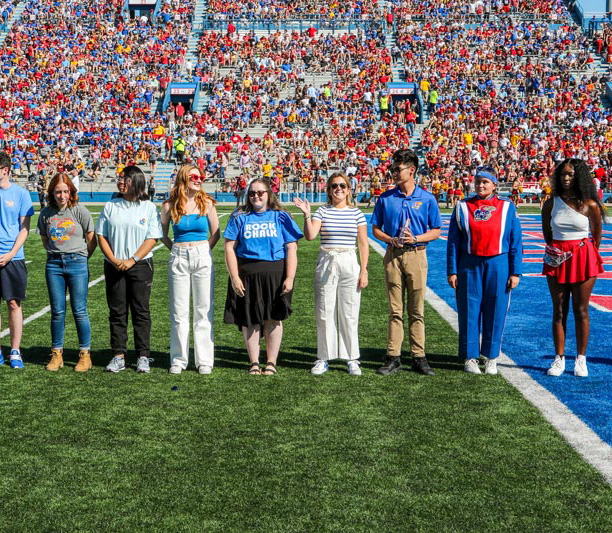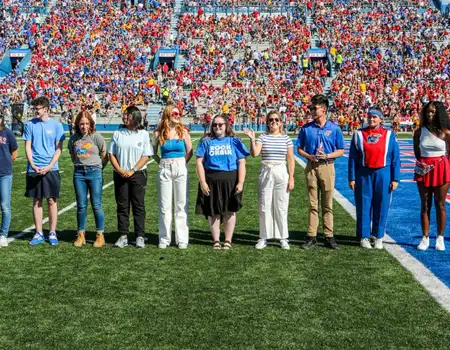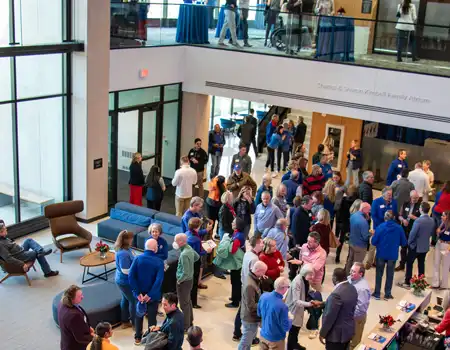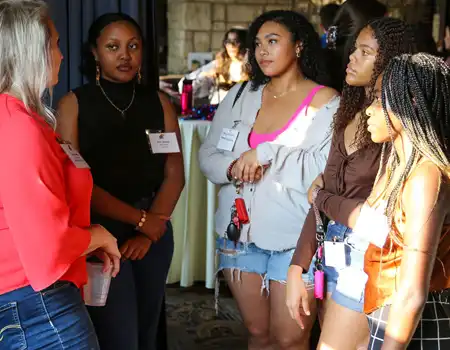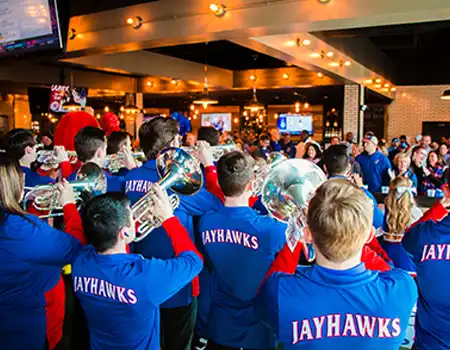Copy the Leader: Matt Dimmick
- November 13, 2023
Jayhawks in leadership positions are everywhere you look, including through the Jayhawk Career Network. KU Alumni, in partnership with SumnerOne, is highlighting Jayhawk leaders who are models for others in their industries with our “Copy the Leader” program.
Matt Dimmick, g’06, is the Europe Regional Program Manager at Spirit of America. We sat down with Matt to learn what leadership means to him.
What do you do in your work?
I received my Master of Arts Degree from the University of Kansas in Russian and Eastern European Studies and served over 29 years in the United States Army. I retired from the Army in 2021 and subsequently joined Spirit of America as the European Program Manager where I build programs that bring aid to the parts of that region where democracy and freedom are at risk. Spirit of America is a nonprofit citizen service organization with the mission of engaging citizens in preserving the promise of a free and better life. We do this by working alongside troops and diplomats to save and improve lives, promoting values shared by Americans and our allies, strengthening relationships with allies, friends and partners, and demonstrating that the United States is a friend of those who seek a better life. Since the Russian invasion of Ukraine in 2022, I have worked almost exclusively on projects to support Ukraine by delivering over $55 million of targeted and tailored aid directly to frontline troops where they fill critical gaps and produce high-payoff results.
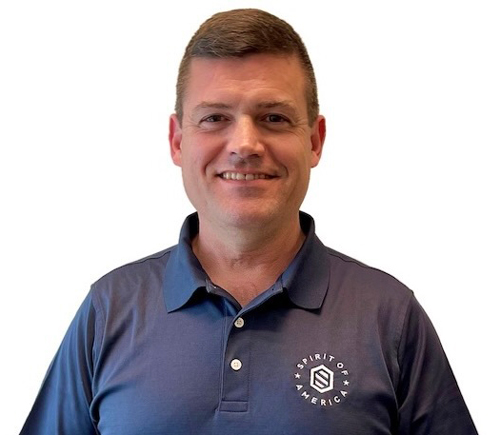
What are the qualities of a good leader?
- Put the needs of your team above your own.
- Have a compelling vision for the successful future of the organization and clearly communicate that vision to every member of the team at every opportunity.
- Lead by example and always act with honesty, fairness, and transparency.
- Consistently demonstrate compassion, foster strong relationships, and create a supportive work environment.
- Listen actively, speak clearly, and provide feedback in a constructive and meaningful way.
- Hold yourself and your team accountable and take responsibility for all of your actions.
How do you practice leadership at your job?
I work with team members spread out across the United States and collaborate with a wide variety of partners all over Europe, so clear communication is one of the most important skills I practice to tamp down the inherent friction in working across multiple time zones, languages, and cultures. Also, in the chaotic environment of executing projects in a war-affected region, I exercise a healthy dose of adaptability and resilience in order not to get derailed by the constant obstacles that can upend even the simplest plans. Additionally, I exert extra effort on maintaining the highest standards of accountability by ensuring that our team squeezes every bit of value out of our donor’s contributions and can clearly demonstrate how we are meeting the objectives we set out to accomplish.
What makes a team or group successful?
A successful team must have a compelling and worthwhile goal that inspires every member to put forward their best effort. Additionally, every good team thrives in an environment of trust built on a strong foundation of effective communication, clear lines of responsibility, and mutual respect. Toxic work cultures destroy teamwork. In successful groups, individuals are matched with the types of work that unleash their fullest potential, and everyone gets the necessary resources and support to accomplish their tasks. Good teams also share an inherent spirit of camaraderie along with a strongly held desire to pull more than their share of the load in order to not let down their colleagues.
How can leaders in your industry help their organizations adapt to change?
Leaders in my industry can help their organizations navigate the constantly shifting non-profit environment by: 1) ensuring their vision and purpose remain relevant; 2) having an effective strategic plan that postures the organization for risks and opportunities; 3) seeking a diversity of funding streams; 4) establishing measures of effectiveness that clearly demonstrate the organization’s value to donors; and 5) protecting the reputation of the organization with uncompromising adherence to transparency and financial accountability.
Want to receive alumni and career stories like this in your inbox? Subscribe to the Water Cooler, a monthly career newsletter for alumni, students and friends. It includes upcoming events, featured mentors, stories about alumni and students, jobs and more.
The Copy the Leader program is brought to you by SumnerOne. SumnerOne is one of the largest independent office technology dealers in the Midwest, with offices in Missouri, Kansas, Illinois, Arkansas, and Oklahoma. We’re a family of respected companies united by ONE goal: to exceed your expectations and help you get the most from your investments in printing, IT, and document technology.

